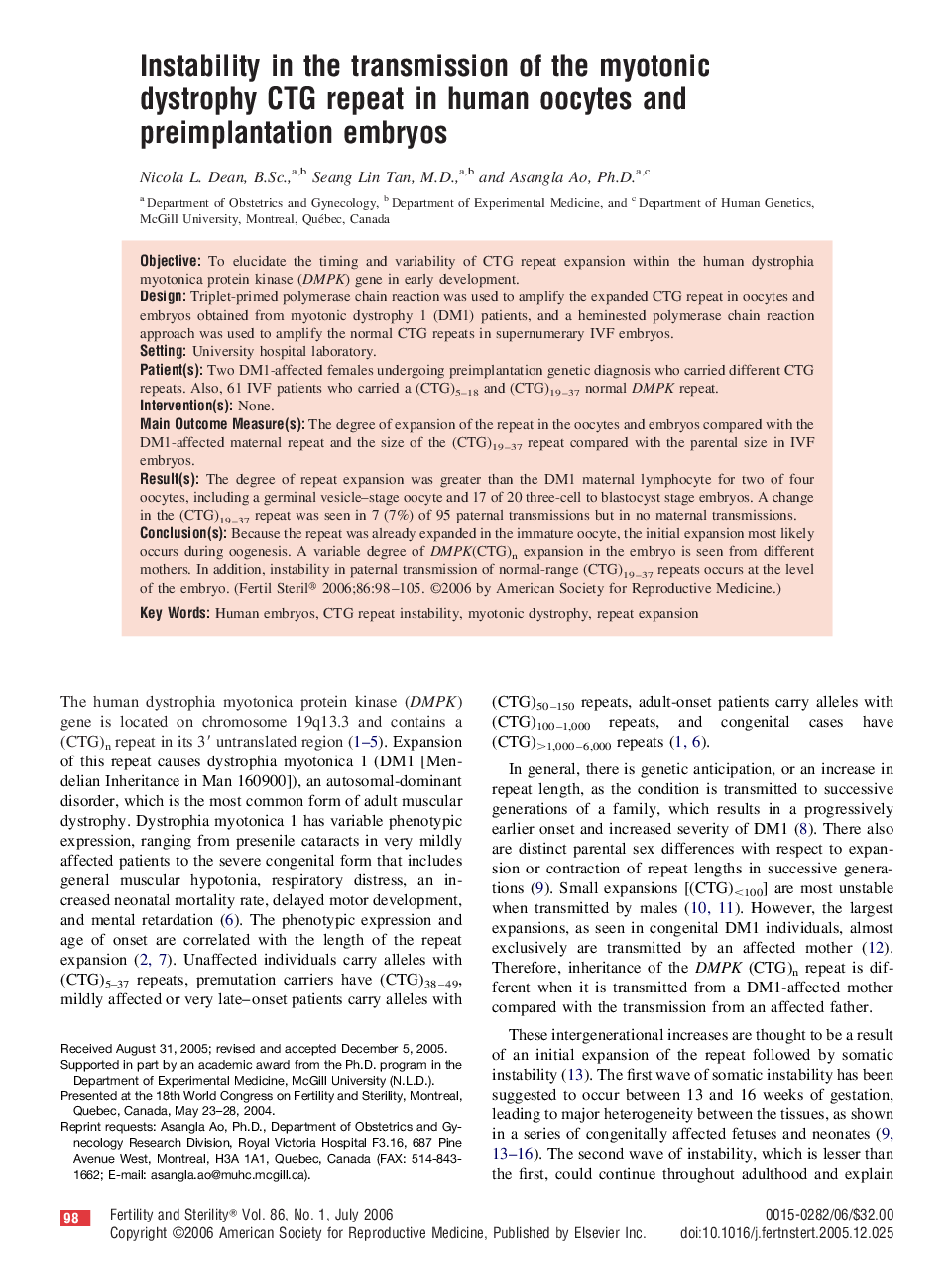| Article ID | Journal | Published Year | Pages | File Type |
|---|---|---|---|---|
| 3941378 | Fertility and Sterility | 2006 | 8 Pages |
ObjectiveTo elucidate the timing and variability of CTG repeat expansion within the human dystrophia myotonica protein kinase (DMPK) gene in early development.DesignTriplet-primed polymerase chain reaction was used to amplify the expanded CTG repeat in oocytes and embryos obtained from myotonic dystrophy 1 (DM1) patients, and a heminested polymerase chain reaction approach was used to amplify the normal CTG repeats in supernumerary IVF embryos.SettingUniversity hospital laboratory.Patient(s)Two DM1-affected females undergoing preimplantation genetic diagnosis who carried different CTG repeats. Also, 61 IVF patients who carried a (CTG)5–18 and (CTG)19–37 normal DMPK repeat.Intervention(s)None.Main Outcome Measure(s)The degree of expansion of the repeat in the oocytes and embryos compared with the DM1-affected maternal repeat and the size of the (CTG)19–37 repeat compared with the parental size in IVF embryos.Result(s)The degree of repeat expansion was greater than the DM1 maternal lymphocyte for two of four oocytes, including a germinal vesicle–stage oocyte and 17 of 20 three-cell to blastocyst stage embryos. A change in the (CTG)19–37 repeat was seen in 7 (7%) of 95 paternal transmissions but in no maternal transmissions.Conclusion(s)Because the repeat was already expanded in the immature oocyte, the initial expansion most likely occurs during oogenesis. A variable degree of DMPK(CTG)n expansion in the embryo is seen from different mothers. In addition, instability in paternal transmission of normal-range (CTG)19–37 repeats occurs at the level of the embryo.
